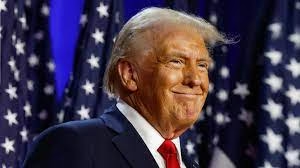President-elect Donald Trump is set to create a National Energy Council focused on advancing U.S. energy production, emphasizing the goal of establishing American “energy dominance.” This new initiative is part of his plan to boost oil and gas drilling, moving away from President Joe Biden’s climate-focused policies.
The energy council will be led by North Dakota Governor Doug Burgum, Trump’s pick for Interior Secretary. It will have broad authority over federal agencies involved in energy permitting, production, and regulation. The council’s primary mandate is to streamline processes, reduce bureaucratic barriers, and foster private sector innovation in the energy sector.
Despite Trump’s promises to increase oil production and lower energy costs, experts highlight that U.S. oil production is already at record levels under Biden’s administration, and private companies ultimately decide production rates based on market conditions. Trump’s goal to significantly reduce gasoline prices faces challenges, as crude oil prices would need to drop dramatically for prices to fall below $2 a gallon.
The creation of the council coincides with Trump’s threat to impose 25% tariffs on oil imports from Canada and Mexico, potentially raising oil prices and causing concerns over U.S. energy security. Industry leaders, including the American Petroleum Institute, have expressed concern that such tariffs could disrupt trade and harm U.S. refiners who depend on crude imports from neighboring countries.
The council’s mandate also extends beyond oil, as Trump has expressed support for renewables like solar and wind power, though critics remain concerned that the focus on fossil fuels might neglect climate change concerns. Experts stress that without addressing climate change, the U.S. risks continued environmental damage, including costly weather-related disasters.
Trump’s broader energy strategy includes an emphasis on “baseload power” to meet growing energy demands, particularly with the rise of artificial intelligence and data centers. While some Republicans are supportive of renewable energy investments, it remains to be seen how the administration will balance fossil fuel interests with the economic viability of renewables. The council’s future direction may ultimately depend on market dynamics and the evolving energy landscape.



